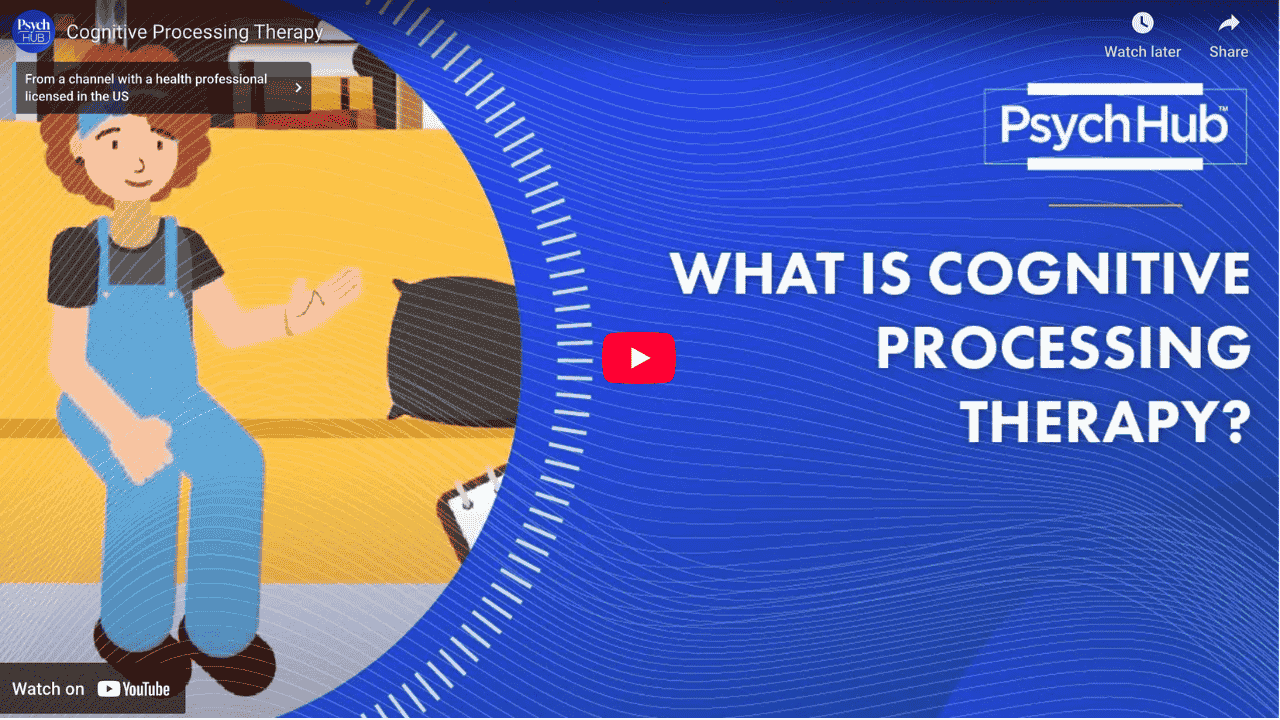The Power of Cognitive Processing Therapy (CPT) for PTSD
Last updated October 9, 2025
Post-Traumatic Stress Disorder (PTSD) is a mental health condition that can have a profound impact on an individual's life. It often stems from exposure to traumatic events such as accidents, abuse, combat, or natural disasters. Those affected by PTSD may experience intrusive memories, nightmares, heightened anxiety, and a persistent feeling of being on edge. However, there is hope on the horizon in the form of Cognitive Processing Therapy (CPT), a powerful therapeutic approach that aims to alleviate the burdens of PTSD.
What is CPT?
CPT is a type of cognitive-behavioural therapy (CBT) specifically designed to assist you in processing traumatic experiences and altering the negative thought patterns associated with those experiences. This therapeutic technique helps individuals challenge and reframe their perceptions of the traumatic event, leading to reduced emotional distress and a greater sense of control over their thoughts and emotions. Learn more about our trauma and PTSD therapies and the differences between trauma-informed care vs treatment.
What is CPT? (Source: Psych Hub)
Understanding the Mechanisms of CPT
CPT operates on the understanding that traumatic experiences can distort an individual's thoughts, leading to irrational beliefs and negative self-perceptions. This, in turn, contributes to the development and perpetuation of PTSD symptoms. CPT empowers individuals to confront and reevaluate these maladaptive thought patterns, thus promoting emotional healing.
Therapy Components of CPT
CPT typically involves several structured sessions (typically it can take 6-16 sessions, but on average, about 12 sessions) conducted over a specific period. During these sessions, you work closely with a trained therapist to explore your traumatic experiences and the associated emotions and beliefs. The therapy involves a series of strategies, including:
Education: Therapists educate you about the nature of PTSD and how it affects your thoughts and emotions. Understanding the condition is a crucial step towards regaining control.
Identification: You will learn to identify the cognitive distortions and negative thought patterns you have developed as a result of the trauma. This step lays the foundation for the subsequent restructuring of these thoughts.
Challenging Beliefs: Through guided discussions and exercises, you are encouraged to challenge your distorted beliefs and replace them with more balanced and realistic thoughts. For example, if you previously believed that “It’s my fault that the trauma happened”, you might change your belief to “There was nothing I could have done to prevent it from happening”. In CPT, unhelpful thoughts are called “stuck points”. Learn more about stuck points.
Socratic Questioning: Therapists engage in Socratic questioning to guide you in analyzing the accuracy and validity of your beliefs, fostering flexibility in your thinking.
Skill Building: CPT equips you with coping skills to manage distressing emotions and situations effectively.
The Path to Healing from Trauma
CPT provides a structured and evidence-based approach to healing from PTSD. While the process can be challenging, the potential for transformative change is immense. By confronting and reshaping the cognitive landscape shaped by trauma, you can regain a sense of control over your life and develop healthier ways of thinking and coping.
If you or someone you know is grappling with the aftereffects of trauma, consider exploring Cognitive Processing Therapy (CPT) as a path toward healing. Remember, seeking professional help is a sign of strength and resilience, and with the right guidance, it is possible to reclaim a sense of well-being and peace. Discover the differences of CPT versus PE for PTSD.
CPT Resources
Resources from the authors’ website
How do I find a CPT Therapist?
You can search for a therapist on the CPT Provider Roster or Psychology Today. Many of the therapists with Virtual CBT are CPT experts and can be found on the CPT Provider Roster. You can find out more about our online trauma and PTSD therapists. You can also book a free consultation with a trauma therapist directly on our website by clicking the tab below.
Written by Melissa Lindstrom, RSW, MSW


